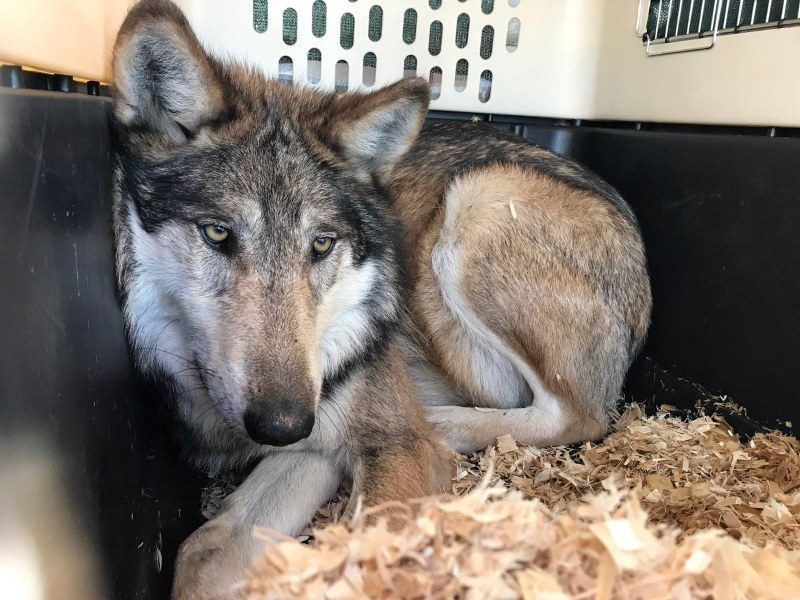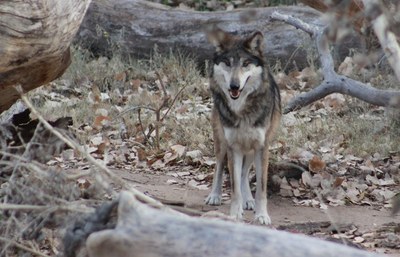
New Lobo Arrives Via Specially Chartered Flight
Mexican Wolf Part of Recovery Program.
Dec. 27, 2018 - The ABQ BioPark has recently taken another step in its program to help support the Mexican gray wolf by welcoming a new lobo to its pack.
The Zoo received Ryder on December 4. The 4-year-old male wolf, which came from the Binder Park Zoo in Michigan, will be a mate to the Zoo's 4-year-old female wolf, Kawi. Ryder came on a specially chartered LightHawk flight piloted by volunteer Chuck Yanke and co-pilot Julie Tromblay.

"The ABQ BioPark is excited to continue its legacy of helping Mexican wolves," said Mammal Curator Erin Flynn. "We are extremely grateful to the pilots and all of the people involved in coordinating this effort."
As part of this program, the Zoo also said goodbye to male wolf Apache, who moved to Brookfield Zoo in Chicago. The 7-year-old wolf had been at the ABQ BioPark since 2015. Last year, cubs from Brookfield Zoo were successfully introduced to a wild wolf pack in Arizona, where a mother accepted them as her own. The cubs' father was Flint, who left ABQ BioPark in 2014 for his new home at Brookfield Zoo.
The ABQ BioPark would like to thank LightHawk for its support on this project. Volunteer pilots fly wolves in order to minimize the stress of travel such as layovers (which involves loading and unloading the wolves) and crowded conditions. Wolves on LightHawk flights also travel in temperature-controlled cabins for the comfort of the animal.
